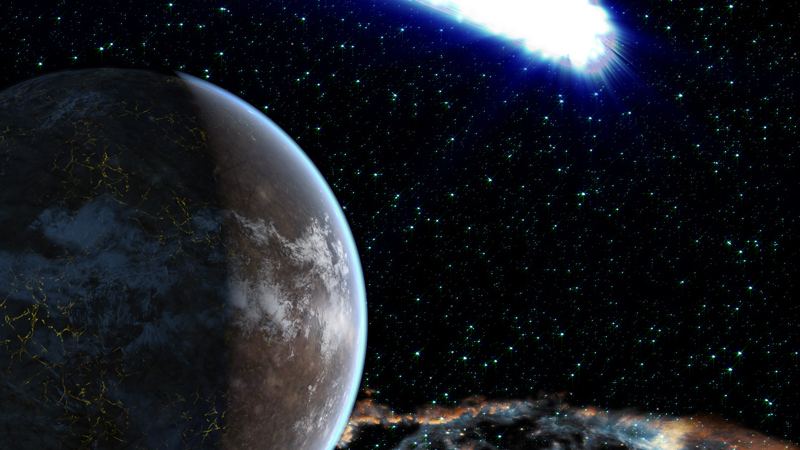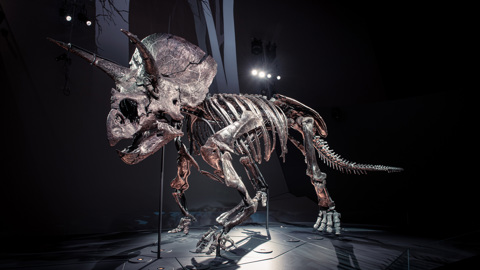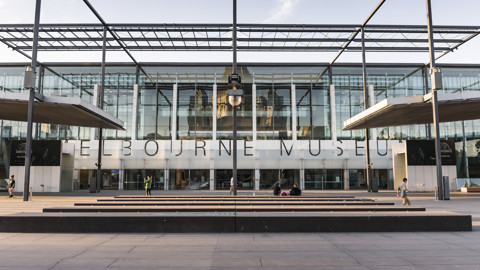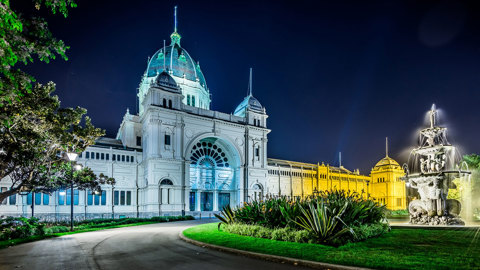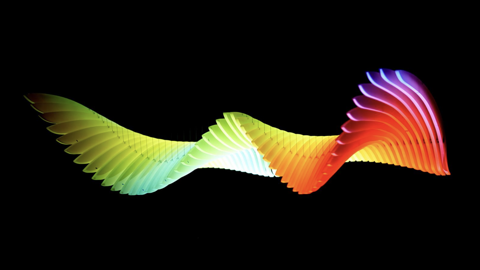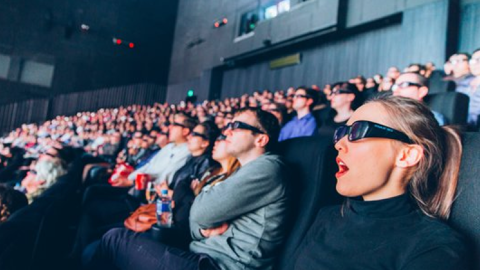
Black Holes
Journey into the unknown ...
No longer the stuff of science fiction, the discovery of the black hole has been a triumph of modern science – an incredible journey from imagination to reality.
Narrated by Academy Award-winning actor Geoffrey Rush, this curriculum-aligned Planetarium show traces the story of black holes from the 18th Century, through to their detection almost 200 years later. This spectacular show is for upper secondary school students and explores concepts related to physics, astrophysics and relativity.
Students will experience
- A Planetarium film with fulldome projection and reclining seats.
- An exploration of how black holes were discovered, from theory to being observed and measured.
- The ways that mass can warp space, to prevent light from escaping
- What would happen if you got too close to a black hole.
Students will learn
- That black holes have a mass so large that light can’t escape from beyond the event horizon.
- How Einstein’s theory of relativity connected gravity with the bending of spacetime.
- About the history of the discovery of black holes, including the ways that scientific understandings change over time.
Related links
- Planetarium
- Student activities 1-10 (PDF 732KB))| 732.19 KB .pdf file
- Student activities 11-20 (PDF 624KB)| 624.24 KB .pdf file
- Victorian Space Science Education Centre
Availability
Terms 2 & 4, Monday to Friday
Duration: 45 minutes
Student information
Years 9 to 10, VCE
Minimum 15 students
Maximum 150 students
Bookings
$10 per student + education service fee
Call 13 11 02 or submit an online booking request
Planetarium
Screening with presenter led tour of the night sky
Victorian Curriculum Links
Science: Levels 9 and 10
Nature and development of science
-
scientific knowledge is contestable and is validated and refined over time through expanding scientific methods, replication, publication, peer review and consensus (VC2S10H01)
-
advances in technologies have enabled advances in science, while science has contributed to developments in technologies and engineering
(VC2S10H02)
Earth and space sciences
-
the universe contains features including galaxies, stars, solar systems and black holes; the big bang theory models the origin and evolution of the universe and is supported by evidence
(VC2S10U13)
Unit 2: How does physics help us to understand the world?
-
Area of Study 2: How does physics inform contemporary issues and applications in society?
-
-
Option 2.13
-
Unit 4: How have creative ideas and investigation revolutionised thinking in physics
-
Area of study 1: How has understanding about the physical world changed?
Accessibility
Please view our accessibility page for general information. Contact our team on 13 11 02 or email us at [email protected] to discuss how we can support your visit.
Museums Victoria Learning Access Fund
The Museums Victoria Learning Access Fund aims to enhance access to our museums (Melbourne Museum, Scienceworks and Immigration Museum), programs and events by offering free or subsidised education programs for eligible schools. Find out more about the fund.

Sign-up to Museum Teachers
Subscribe and get special offers, teacher news and free entry to all museums.



